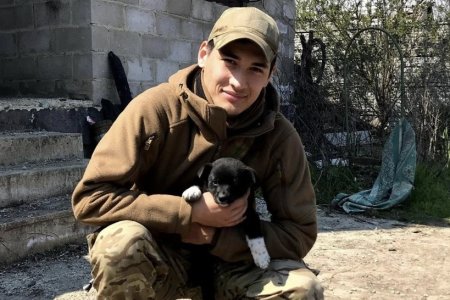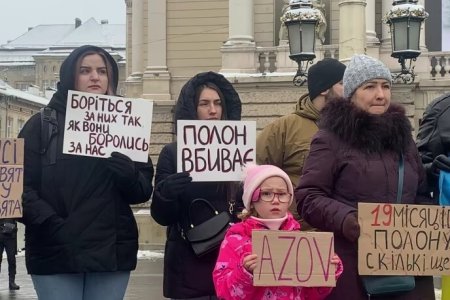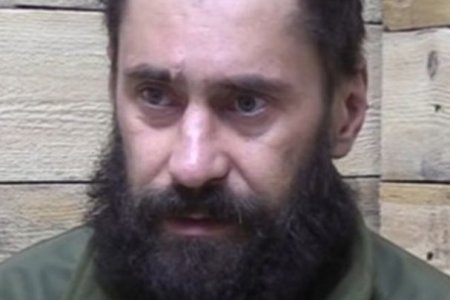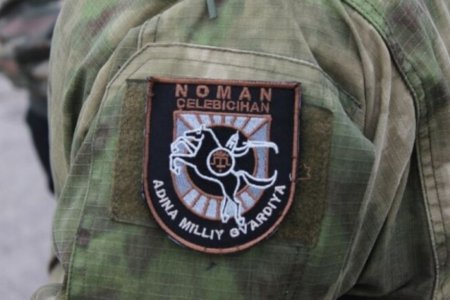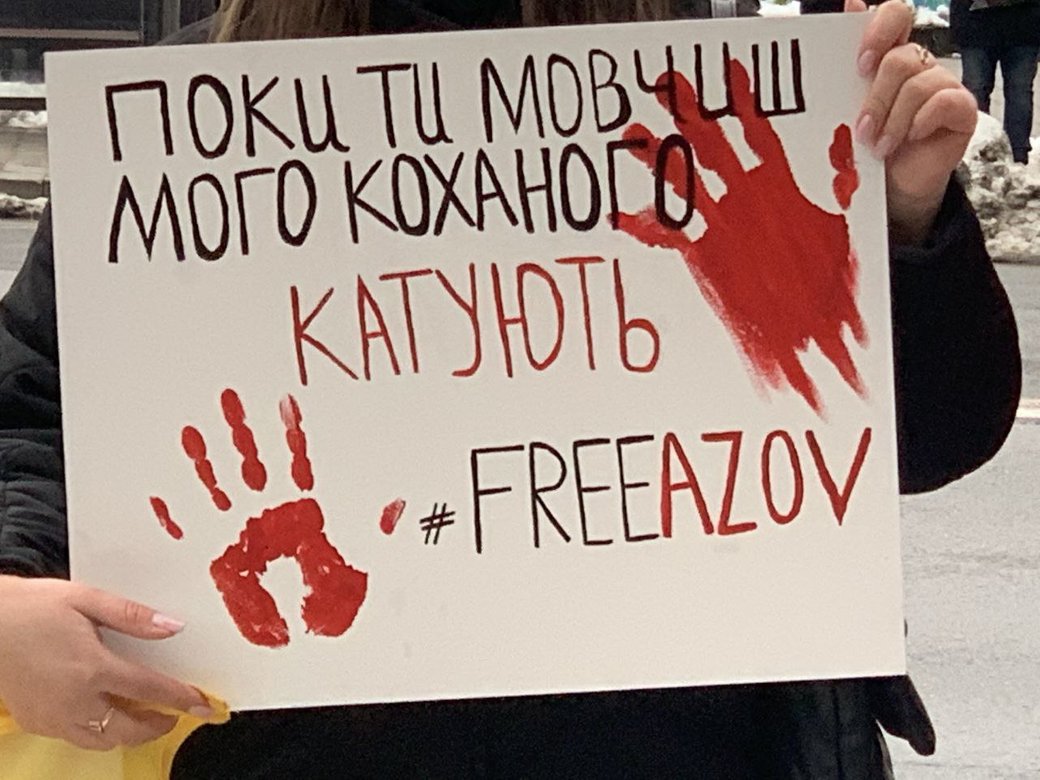
A Russian court has passed an 18-year sentence against Ivan Melnykovych less than two years after an even longer sentence on different, although no less cynically absurd, charges, against the now 26-year Ukrainian prisoner of war. Melnykovych is one of an increasing number of prisoners of war against whom Russia has staged two, or even three, show trials.
The second sentence was passed on 12 November by ‘judge’ Andrei Nikolaevich Minashkin from the Southern District Military Court in Rostov. Despite ‘terrorism’ charges carrying a sentence of up to life imprisonment, there had been no trial as such. One hearing was postponed because the defendant had not been brought to the court, a second because the so-called defence lawyer had failed to appear. A third may have taken place, but seemingly only in order for Minashkin to withdraw to ‘prepare’ the sentence.
All of this is logical enough, if frighteningly cynical, since the guilty verdict was predetermined, and the charges copy-pasted from one trial to another. The ‘terrorism’ charges were based solely on a Russian supreme court ruling from 2 August 2022, which declared the Azov Regiment, which is part of Ukraine’s Armed Forces, ‘a terrorist organization’. The ruling was widely understood to be a pretext for persecuting members of the Azov Regiment who had played a major role in the defence of Mariupol following Russia’s full-scale invasion of Ukraine. This is precisely what has happened, with Russian ‘judges’ flouting the fundamental principle that the law is not retroactive and sentencing Ukrainian defenders taken prisoner months before the ruling. Judging by the charges in his first ‘trial’, it is likely that Melnykovych has been in Russian captivity since March or April 2022.
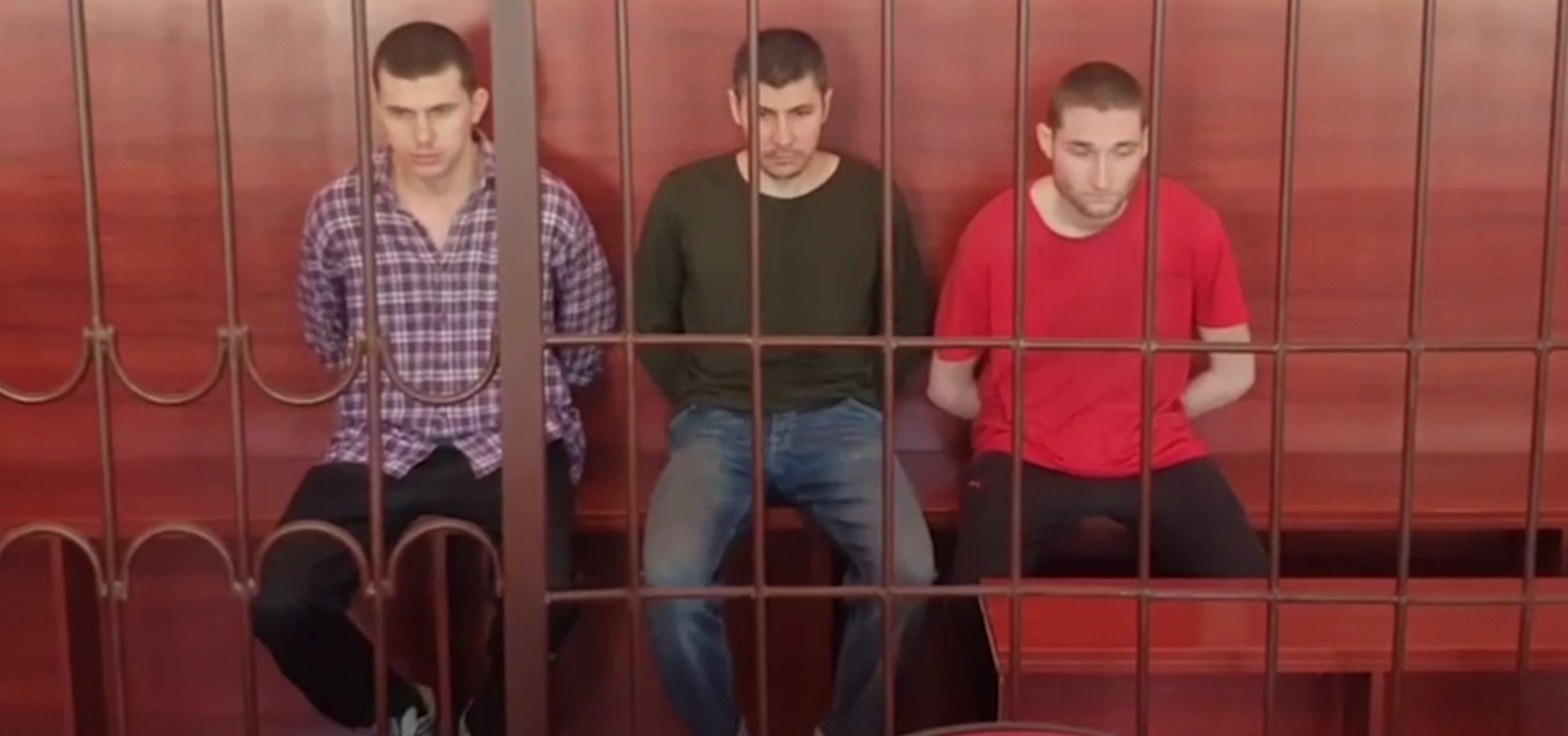
Melnykovych was, nonetheless, charged, on the basis of Russia’s supreme court ruling, under Russia’s ‘terrorism’ legislation, despite having been seized while defending his country. He was accused of involvement in a terrorist organization’, under Article 205.4 § 2 of Russia’s criminal code and of ‘training in terrorist activities’ (Article 205.3).
Even if Melnykovych pleaded ‘guilty’, he was essentially charged only with serving in the Ukrainian Armed Forces’ Azov Regiment, something he had absolutely no reason to deny. Since he is in Russian captivity, where UN and other investigators have concluded that around 90% of Ukrainian prisoners of war are subjected to torture. Former POWs released in prison exchanges have all confirmed that defenders from Azov have received especially brutal treatment. Any agreement to ‘cooperate with the prosecution’ would almost certainly have been under torture, or because he faced the threat of torture.
All of the above was ignored, with Minashkin passing an 18-year sentence in a maximum-security prison colony.
This was a little over two years after the first sentence reported by Russia’s Investigative Committee on 21 August 2023. This was purportedly after a ‘trial’ before the Russian occupation ‘Donetsk people’s republic high court’, although it is quite unclear whether the ‘trial’ was more than an opportunity for Russian propaganda photos during the reading out of the sentences.
Melnykovych, who was then 24, was ‘tried’ with two other Azov defenders, Andriy Klementovych (26) and Artur Syvitsky (31). The Investigative Committee claimed that the sentences were “for crimes against civilians in Mariupol”, with the three Ukrainian defenders charged under Russian law with ill-treatment of the civilian population (Article 356 § 1 of Russia’s criminal code); and attempted murder of two or more people by an organized group for motives of ideological enmity (various parts of Article 105) and Article 30 § 3).
This was a cynical attempt to rewrite history, with it claimed that the Ukrainian defenders had “taken part in military action in Mariupol, preventing the exit of civilians from the city by humanitarian corridors presented by the armed forces of the Russian Federation.” Russia’s attack on the city, with relentless bombing and shelling of entirely civilian targets. is well-documented, as was the virtual blockade of the city, with Ukrainians prevented from leaving for safer Ukrainian territory.
The three men were accused of having, in March 2022, discovered “a car in which there were two men not taking part in the armed conflict.” It was claimed that the Ukrainian defenders assumed that the two men supported Russia’s so-called ‘special military operation’ and held pro-Russian views. Although they were accused of having fired 50 shots at the “victims”, one of the men was said to have “left the car when it stopped and hid”, while the other had also, purportedly, survived by “hiding in the car”. All three men were sentenced to 20 years’ maximum-security imprisonment.
Mediazona writes that it is aware of 45 cases where Ukrainian prisoners of war have been ‘tried’ at least twice. These ‘trials’ seem largely aimed at propaganda and at rewriting the facts about Russia’s war of aggression against Ukraine, however the FSB doubtless want to improve their ‘statistics on fighting terrorism’ by obtaining such guaranteed ‘terrorism convictions’.
See also:
Russia sentences Ukrainian POW Ihor Kim twice to 24 and 27 years for defending Mariupol in 2022
